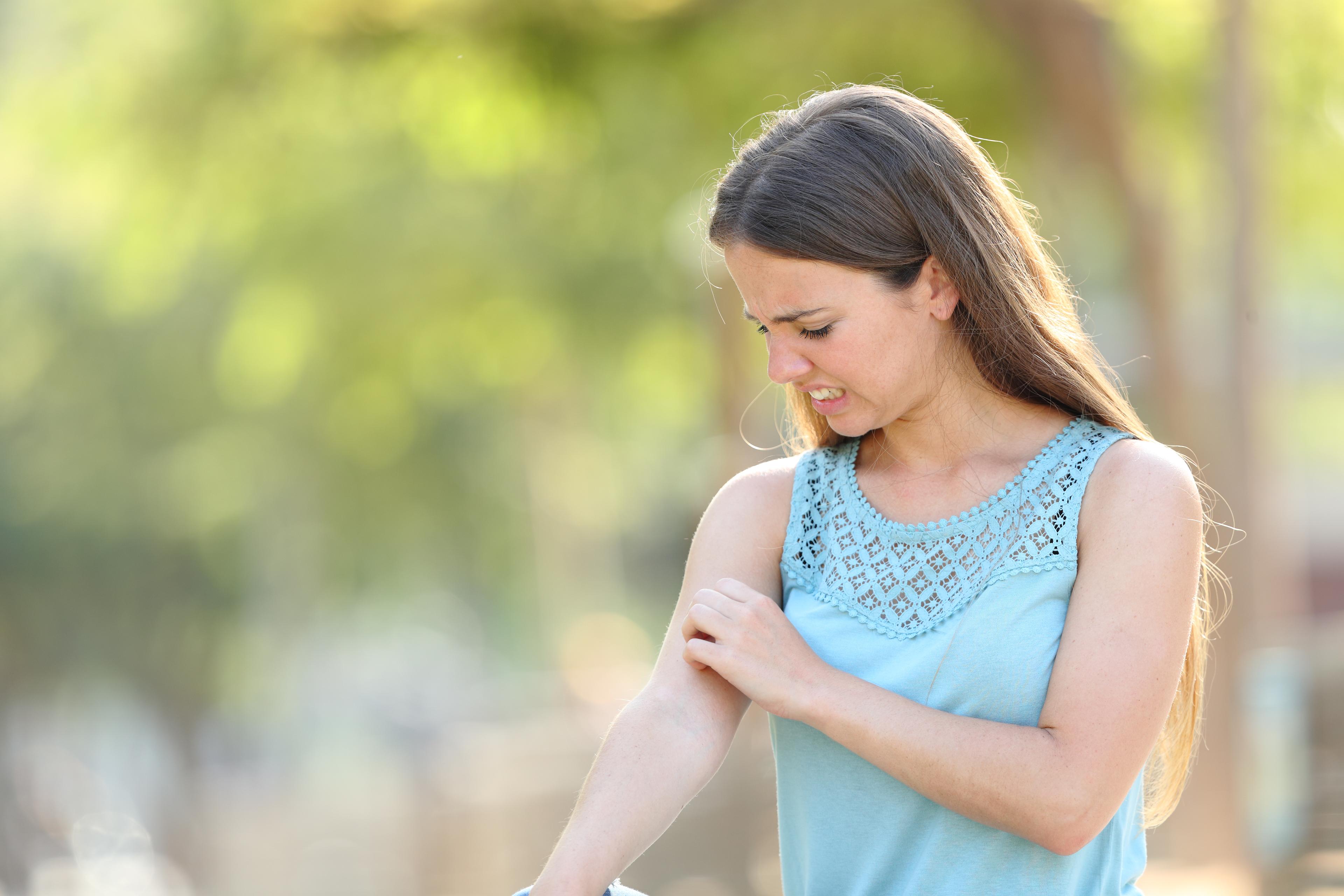Eczema, a term that comes from the Greek word ‘to boil over’ is often used interchangeably with dermatitis, derived from the Greek ‘derma’ meaning skin and ‘-itis’ meaning inflammation. Eczema is a very common condition with a spectrum of types and ways it can affect an individual. It is a chronic condition that is mainly associated with infancy or childhood. However, it can, and does, occur at any age, and usually has cycles of acute flare ups. It is important to highlight that eczema is not contagious! It mainly affects the inside folds of limbs but there is a scale of severity, with eczema at its most severe, impacting the whole body.
The different types of eczema
Atopic eczema is the most common type of eczema and the term that has the most public awareness. However, there are actually six other types of eczema that don’t get as much air time:
- Contact dermatitis is related to specific irritants, such as chemicals or nickel, and mainly troubles those in specific employment groups such as hairdressers and painters;
- Dyshidrotic eczema mainly appears on the hands and feet and is characterised by small, itchy vesicles;
- Nummular dermatitis is usually caused by an injury to the skin and is characterised by multiple circular patches;
- Seborrheic dermatitis is caused by a yeast; Malassezia, mostly seen on the scalp and face;
- Venous eczema is related to poor circulation, mainly in the lower limbs and is often seen in the elderly or those with cardiac or renal co-morbidities;
- As a result of intense itching in atopic/contact dermatitis, neurodermatitis can develop. It is usually confined to one or two areas of skin, and nerve endings can become irritated.
Why me? Why eczema?
We don’t actually know what causes eczema but it is likely there are multiple causes (including genetic and environmental). People who have eczema are more likely to have asthma, hay fever & food allergies, a combination described as Atopy. There has been much research related to triggers, and for sufferers, it can seem like an endless search for them. Detergents, soaps, clothes, house dust, animal dander, food, weather and stress are all known triggers – the list is endless! For the majority of people, there often seems to be no apparent reason why their eczema flares up.
However, what we do know is when an irritant from outside or inside the body “switches on” the immune system, it produces an overactive allergic inflammatory response and the skin's barrier becomes compromised. Studies have shown an association between those with eczema and mutations in the Filaggrin gene, a protein which is responsible for maintaining the skin barrier. It is this inflammation that causes the symptoms common to most types of eczema. Symptoms such as itchy, dry, sore and cracked skin emerge. Skin can look swollen and red, with oozing and weeping (figure 1). Continual scratching can lead to an acute bacterial infection known as Impetigo, or Lichenfication, the characteristic hard, thickened skin.
Altered microbiomes and staphylococcus aureus colonisation are also hot topics in those with eczema, making way for potential new therapies such as microbiome transplants.
Principles of eczema management
As Eczema is chronic, there is unfortunately no absolute cure, but identifying triggers for flare ups can be very helpful. As well as this, finding the right emollient cream is key, along with ensuring it is applied liberally enough to restore the skin's barrier. The current advice is 500g per week for an adult, which can prove costly! Short term, a daily corticosteroid cream can help with the inflammation along with an antihistamine to try and break the “itch-scratch cycle” but, as you can imagine, it is a laborious and exhausting task for anyone who suffers from eczema and they aren’t without their side effects. More than 50% of people spend over 5 hours per week managing their eczema!
Many people will do all of the above stringently and still struggle with flare ups, which can be incredibly disheartening. There is nothing worse than telling someone with eczema to stop scratching, or prescribing stronger and stronger corticosteroids with the hope this will curb their symptoms. Therefore, the next step is often specialised therapies such as immunosuppressant drugs (Ciclopsporin and Methotrexate) as well as Biologics and Phototherapy (narrow band UVB and Psoralen and UVA).
Many thanks to the Aesthetic Medics Dr Emmily and Dr Emily for taking the time to create a super explanation of eczema, what it is and how to manage it.
If you're suffering with a skin issue - or just want to improve your skin's appearance, Glowday is now offering Skincare Consultations with qualified experts. You definitely won't want to miss this!

